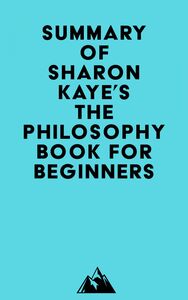
Please note: This is a companion version & not the original book.
Sample Book Insights:
#1 Hindus believe that good behavior leads to better life circumstances, and bad behavior leads to worse circumstances. We must reject the physical world and believe in Brahman, which is nonphysical and formless.
#2 Aristotle believed in ideal forms, which are perfect shapes that exist in the nonphysical realm. Humans can access these shapes through meditation. Everything in the physical world exists as a shadow of these ideal forms. The material cause explains the object’s form or shape. The efficient cause explains how the object functions or behaves. The final cause explains why an object is the way it is. -> Aristotle was a student of Plato, and he disagreed with his teacher on just about everything. He was not interested in perfection and the world of perfect forms, but rather just wanted to understand how things work. He believed that every existing thing is explained by four causes: the material cause, the formal cause, the efficient cause, and the final cause.
#3 Margaret Cavendish was a 17th-century English philosopher who argued that only the physical world is real. She did so by arguing that all reality is in motion and that immaterial objects cannot move. She concluded that since materialism requires motion, immaterial objects must not be real.
#4 Berkeley argued that the only thing that exists is mind. The physical world is an illusion, and humans can only perceive minds.Book details
-
Publisher
-
Language
English -
Publication date
-
Theme






